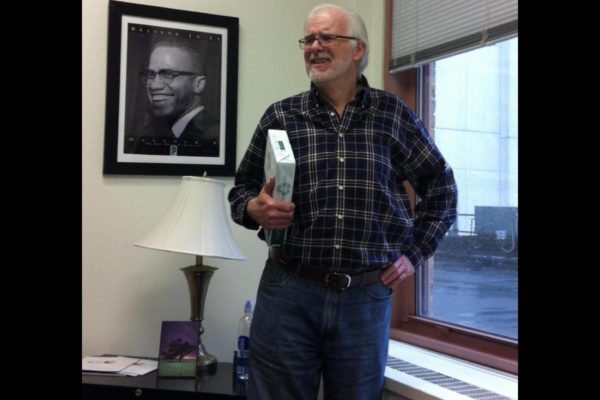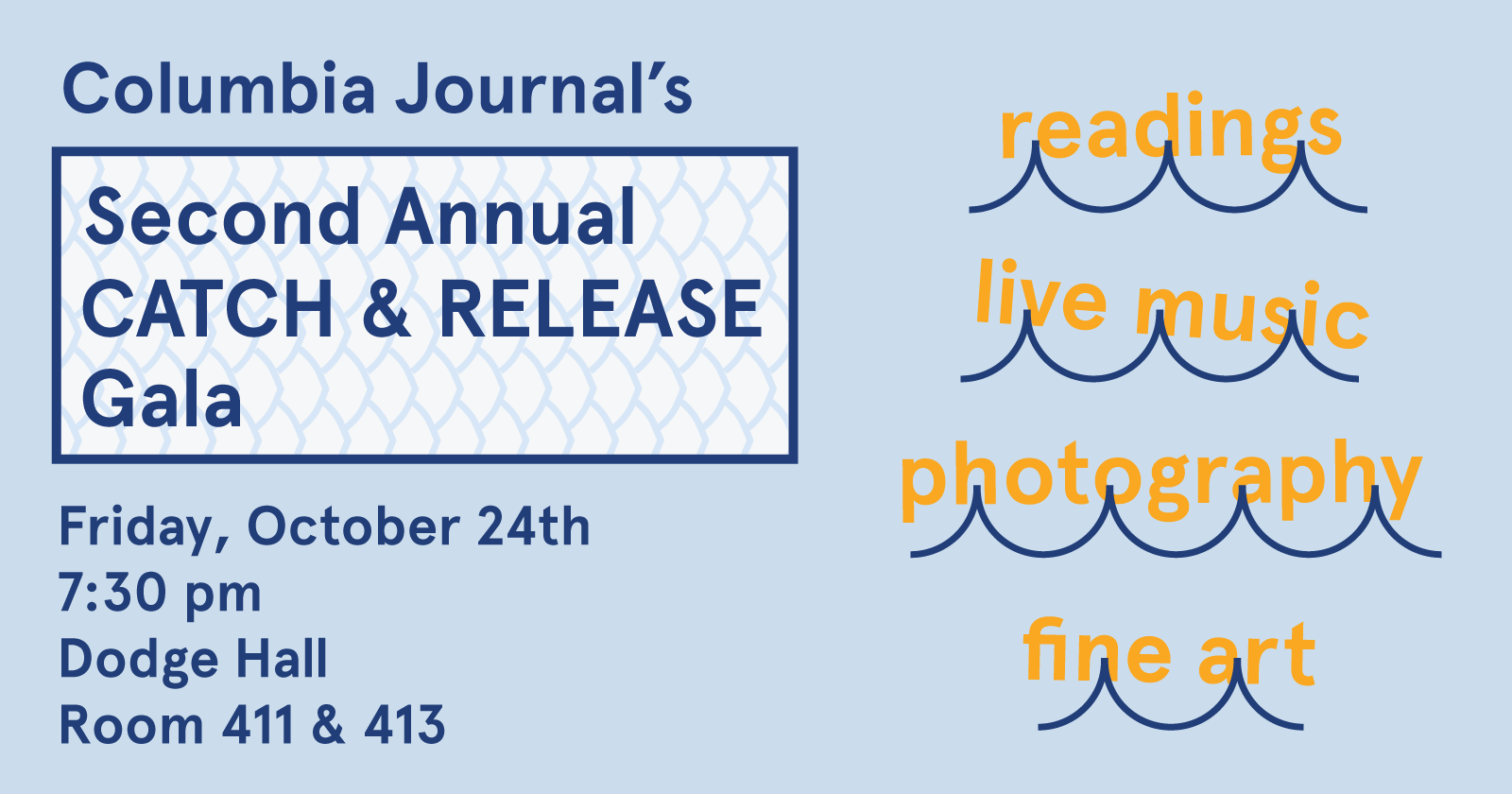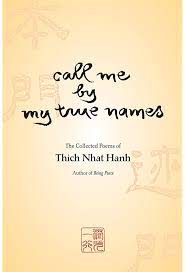Editor’s note: A wake will be held on Thursday, February 9, 2017 from 4pm to 8pm at Riverdale on The Hudson Funeral Home, and a mass will be held on Friday, February 10, 2017 at 10:30am at Saint John the Divine in Manhattan. In lieu of flowers, gifts may be sent to the TCFund and designated to financial aid in memory of John Browne, which will support scholarships for students in need.
Our little lives are rounded with a sleep.
John Browne died on Sunday. I knew him, Horatio.
In the Spring of 2014, just when the darling buds of April were beginning to burst from their hibernal slumber, Professor Browne pulled me over into the corner of Thorndike 127 and whispered into my ear, “when I say ‘if thou dost love me, show me thy thought’, I’m going to grab you by the throat and slam you into the wall.”
“You’re gonna choke me?” I laughed, gazing up into the shining, blue Irish eyes of this 6 foot 4 inch, towering guru of Shakespeare.
“Yes,” John said, his lips cracking a smile.
“Okay,” I chuckled, curious what metaphorical joke he had in mind. Professor Browne was always filled with sardonic one-liners. I took my position upon our classroom’s makeshift stage, and we prepared to play the scene.
This was the 8th week of Professor Browne’s Teaching of Shakespeare course at Teachers College. John was a zealous advocate of performing the text in order to teach it, and I had been cast as the Iago to his Othello. The scene began, and we made our way towards the center of the room. I had laughed off John’s warning. Like with most things John Browne, I figured he was fucking with me.
We served lines back and forth in a lyrical game of navigating trust and mistrust. As with so many things Shakespeare, the words swashbuckled. Then he bellowed the fateful line: “If thou dost love me, show me thy thought.” As John’s voice rose with intensity, he quite literally grabbed me by the throat, squeezed his fingers, and pushed me backwards. I felt my shoulders slam into the wall.
For all of his plentitude of Irish wit and good humor, John believed in the absolute authenticity of the theatrical moment. I should have known better than to doubt him, if for no other reason than I believed in it, too.
On Sunday morning, February 5th of 2017, the world of English language and literature lost one of its best friends. John Browne was a senior lecturer at Teachers College and, prior to that, had spent 32 years teaching at both the junior high school and high school levels in New York City. In what felt like an instant, he lost it all following a very brief fight with lymphoma.
John was diagnosed in late November of 2016. Fighting back tears, he addressed his Masters students at Teachers College, explaining that he would be finishing out the course but taking off the following Spring for treatment—for chemotherapy. Lymphoma is generally treatable; such attempts have an 86% percent success rate, and we figured he’d probably return for the Fall semester in 2017.
Throughout his career, John was first and foremost devoted to teaching. Despite his remarkable accomplishments while presiding as a faculty member at one of the best institutions of learning in the world, John demonstrated humility and dignity to the students he served. He would’ve used that word— service— because he prioritized their education above his own research and scholastic endeavors.
John kept a special place in his heart for Shakespeare—something which united us at the core. My own love for Shakespeare began at the age of 12, when my oldest brother coached me through a reading of the Merchant of Venice. I went on to major in English at Harvard. I wrote my Junior Thesis on Hamlet and my Senior Thesis on King Lear. Afterwards, I applied to teach Shakespeare at a small, progressive private school in Brooklyn called Bay Ridge Prep, where I have been teaching for the past 17 years.
When I met John in the fall of 2013, I was an English Education doctoral student conducting research on methodologies for teaching Shakespeare. Professor Randi Dickson made an introduction and suggested I interview John. He warmly invited me to his office at 511 Thompson, where we sat and reflected on teaching the bard. What I remember most vividly about that day was how he sought to know what I believed and thought. I thought I was interviewing him but realized he felt genuinely inclined to interview me as well. His authentic and reflective mode of collaboration come to mind when I try to define John Browne’s existence and teaching life.
They say that all the world’s a stage, and that every man must play his part. John’s was a good part. He was not necessarily the lead actor—there were certainly professors and Shakespearean scholars globally who received more recognition and public acclaim than he—but John’s part was essential. His tremendous love for Shakespeare, and his humility before the genius of the bard made him the ideal mentor for so many students, over so many years. He was a true keeper of the flame, using his classroom to ensure that iambic pentameter, Macbeth, the sonnet, and Stratford-upon-Avon remained alive and fresh.
When I heard John had contracted lymphoma, I reached out to him immediately. He assured me that despite feeling weak, he was receiving excellent care. He explained that he would return to health. I looked forward to seeing his smiling face as I passed him in the halls at Teachers College, exchanging puns and jokes, and receiving updates about a new production of Twelfth Night, or a Shakespeare festival that I needed to check out over the summer.
We wrote to each other often following his diagnosis. He always responded quickly to me, as was his custom. On November 30th he wrote:
Dear Adam,
You are so kind. I am getting the best of care
and feel very fortunate…. I won’t be teaching
Shakespeare in the spring term. Perhaps drop
it completely come next fall. Too early to make
that decision….
Down the road we’ll meet up for a drink or two.
Knowing you has been one of TC’s gifts to me.
John
On December 8th he wrote, “I’m okay. Will be a long journey, but I expect it to be a successful one.” Later that week I sent him a t-shirt that had a run of Shakespearean insults on it. I had been thinking of how, on the first day of his course, John ran an ice-breaker where he asked his students to pick a Shakespearean insult out of a hat (these are real insults from plays). John then had the students walk around the room insulting each other. He received the t-shirt and wrote this to me on December 16th:
This is really cool, you ‘lump of foul deformity’.
Monday is my last class. I will wear this shirt under
my shirt. Before we end the class with ‘compliments,’
I’ll take off-the horror, the horror-my covering shirt and
we can literally see where we started and where we
are now.
Your shirt makes such a ‘canker-blossom’ closing prop
that rather than being a sort of ‘poisonous hunch-backed
toad’, it works to thread everything together.
Also, and most of all, I appreciate the kindness,
thoughtfulness, and concern this ‘rampallian!
fustilarian!’ so well represents.
That was John. Never missing an opportunity to be cruel only to be kind. And so many people loved him for it. This summer I will assume responsibility for John’s Teaching of Shakespeare course. There will be master’s students who will have never had the fortune of meeting him or receiving his lessons. I will do my best to honor his spirit and bring it to the classroom.
If Shakespeare teaches us anything, it’s that we all are human, and that each of our lives will inevitably make its way “towards the pebbled shore.” And yet somehow, despite its truth, it feels so different in real life than it does on the page. Death, though we may avoid it at all costs, has quite a powerful presence, and tends to be eternal.
We lost John Browne on Sunday morning, February 5th. He joined Shakespeare in the undiscovered country. We will all follow him there eventually. The world is far worse off for his absence, but also far, far better off for the rich life and role he played.
If there were curtains, John, we’d ask for an encore.
 Adam Wolfsdorf is a PhD candidate in English education at Teachers College, Columbia University. He has been teaching Shakespeare and American Literature for the past 17 years. Currently, Adam is the Coordinator and an Instructor in the INSTEP Masters program in English Education at Teachers College, where he teaches educational philosophy, drama, and Shakespeare. In addition to his comprehensive work in English education, Adam has been a professional musician and performer for the past 25 years. He appeared in the national tour of the Broadway musicals RENT and Grease, and has written and recorded original music that has appeared on MTV, NBC, ABC, and ESPN. Adam’s current publications include: An Ode to Our Field (English Journal, upcoming April 2017), Black Coffee (Catch and Release, Columbia Literary Journal), Maxine’s Last Class (Catch and Release, Columbia Literary Journal), and Monday’s (TC Public Space, Teachers College). Adam is finalizing a novel, The Greek Apology, and a screenplay, Makin’ It.
Adam Wolfsdorf is a PhD candidate in English education at Teachers College, Columbia University. He has been teaching Shakespeare and American Literature for the past 17 years. Currently, Adam is the Coordinator and an Instructor in the INSTEP Masters program in English Education at Teachers College, where he teaches educational philosophy, drama, and Shakespeare. In addition to his comprehensive work in English education, Adam has been a professional musician and performer for the past 25 years. He appeared in the national tour of the Broadway musicals RENT and Grease, and has written and recorded original music that has appeared on MTV, NBC, ABC, and ESPN. Adam’s current publications include: An Ode to Our Field (English Journal, upcoming April 2017), Black Coffee (Catch and Release, Columbia Literary Journal), Maxine’s Last Class (Catch and Release, Columbia Literary Journal), and Monday’s (TC Public Space, Teachers College). Adam is finalizing a novel, The Greek Apology, and a screenplay, Makin’ It.




